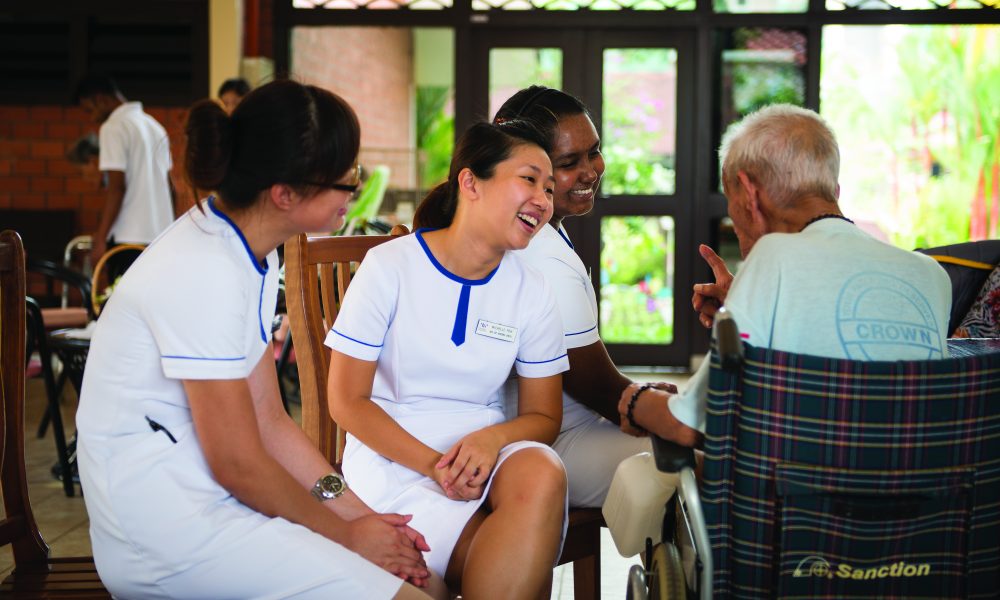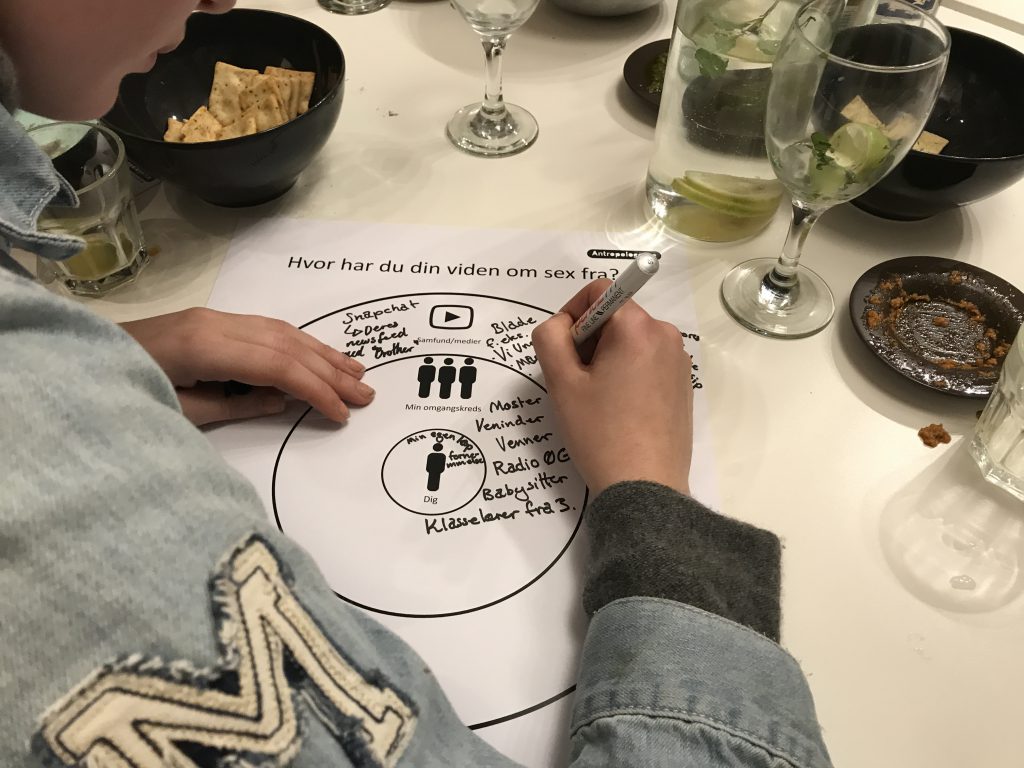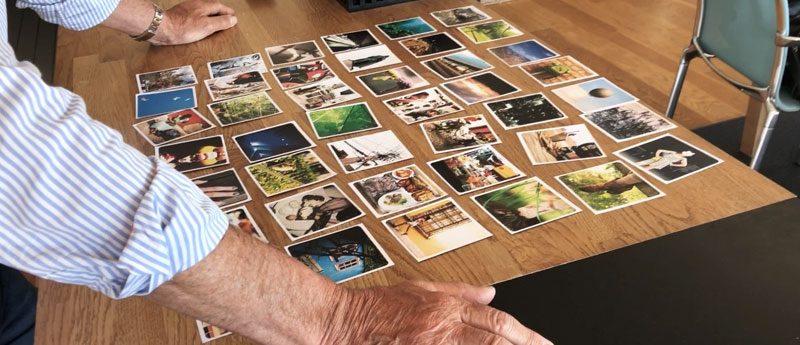Design research offers critical new thinking and a refreshing vision with which to re-imagine future care services for everyone. Ageing and non-communicable diseases are straining healthcare systems and societies worldwide, with hospitals, care homes, communities and families struggling to cope. Design research explores the needs and perspectives of the chronically ill, but also their caregivers, and studies the relationships between them. Increasingly, awareness and dialogue around key societal issues like mental health, ageing, and sexual health are fostered and accepted. At the same time health, fitness and well-being sectors are bustling with activity, with new start-ups around every corner. How can design research help to better understand the complex connections between lifestyle, fitness, nutrition, ageing and health and wellbeing? Where are the service gaps, and how can rich insights help inform the strategic design of care offerings? Reach partners around the world have worked on projects spanning this full scope.
Care Capsules – a global design research collaboration in response to the Covid-19 pandemic
Early 2020, the Covid-19 global pandemic quickly spread and affected the lives of billions around the globe, including the members of the Reach Network. We felt a strong need to come together as a community to collectively understand the changes in our societies at this unique moment in time. As design researchers and anthropologists, we quickly realised that we could make use of our professional skills to contribute to the on-going learning about new forms of care. At both local and global levels we had seen new manifestations of care and wanted to understand these better as a potential force of change in our societies whose weaknesses had been laid bare by the pandemic.
This resulted in the Care Capsules project, led by Reach partner The Care Lab in Barcelona and supported by Reach members from the UK, the Netherlands, Spain, Indonesia, India, South Africa, Mexico, and Russia. We interviewed key workers (paid and voluntary) during the pandemic and witnessed the emergence of a new understanding of care and new care roles in our global communities. Despite the different locations, all were operating within a dominant context of top-down Covid-19 regulations being rolled out in a command-and-control style mostly from national levels. Our perspective was different. Throughout this project, we looked at the pandemic with a more human- centred design approach, where the emphasis is placed on how people actively find and grow resilience as a community in times of crisis themselves from the bottom up. By collecting and analysing more than 50 personal stories and experiences of Covid-19 across the world, the Care Capsules project aims to learn about new ways of providing care to one another and how we can collectively redefine caring in our societies.
Some of the main insights we discovered so far are:
- Three types of care should be interwoven in a healthy balance: how individuals care for themselves, for each other, and for others.
- Crises can be both disabling, as inequalities are amplified; but also potentially empowering, as social relationships are strengthened and there’s a reframing and natural sharpening of what matters most to people.
- The pandemic opened up a safe space to talk about emotions and, in general, mental health awareness grew, at the same time that it brought new difficult conversations and stigmas relating to the threat of Covid-19 itself.
- What it means to care is inherently shaped by people’s underlying belief systems and values, for which a new layer of anxiety builds up, often triggering a constant daily quest to find a balance between safety and quality of life.
- New meanings of care emerged, as well as new care roles and acts of care; reframing how we think about care and what priority we give to it within our caring ecosystems.
- The interviews itself with the 50+ participants who shared their time with us had a therapeutic effect on themselves, as it enabled them to express their thoughts, emotions and tell their own stories on how they were living this situation.
Social Innovation Exchange (based in the UK) included REACH Network’s Care Capsule work as a resource in their global Wayfinder project focusing on shaping social innovation in urgent times. Reach partners hosted an event in September for Wayfinder where care was discussed along with observations and insights emerging from the Care Capsules research. This discussion was part of nearly 100 global conversations that contributed to a collection of stories and an understanding of current themes around social innovation.
This project is ongoing as we move into 2021, when the Reach Network will keep enriching the data as the pandemic continues to evolve around the world and shape our collective lived experiences. We look forward to publishing our conclusions and findings, as well as reaching out to find potential collaborators interested in developing specific opportunities for new care solutions & strategies that help build community resilience to global crises.
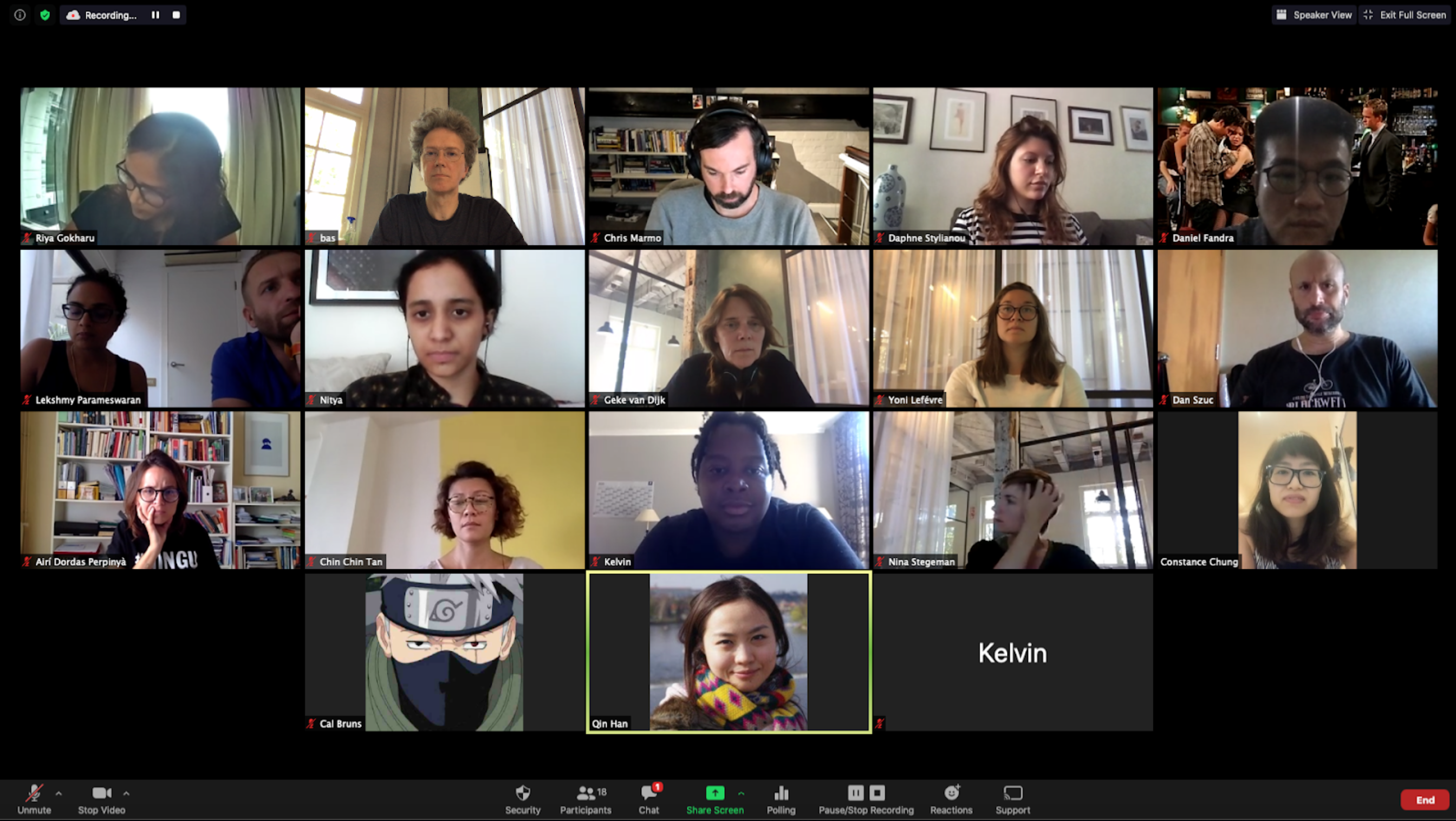
Who Cares? Designing for caregivers in Singapore
Caregivers are often invisible to the health and social care service. And yet they play an essential role in our increasingly ageing societies. They carry the daily burden of looking after their loved ones, patients or clients. How might we transform the social care landscape to raise awareness of caregivers’ efforts, and better support them in their crucial role? The National Council of Social Service (NCSS) commissioned our Barcelona based Reach partner The Care Lab to do a strategic design project with the aim to design a better caregiving future for Singapore.
The Care Lab worked on an overarching strategy to transform the social care landscape to be better integrated with healthcare, education and citizen services. They applied the principles of design to the systemic challenge of the social care sector, and identified opportunities for targeted action to deliver more holistic solutions. They created concepts to introduce new actors, care settings, tools, services, campaigns that collectively embed a culture of caring into society, and a prototype toolkit to facilitate social workers to begin caring for caregivers.
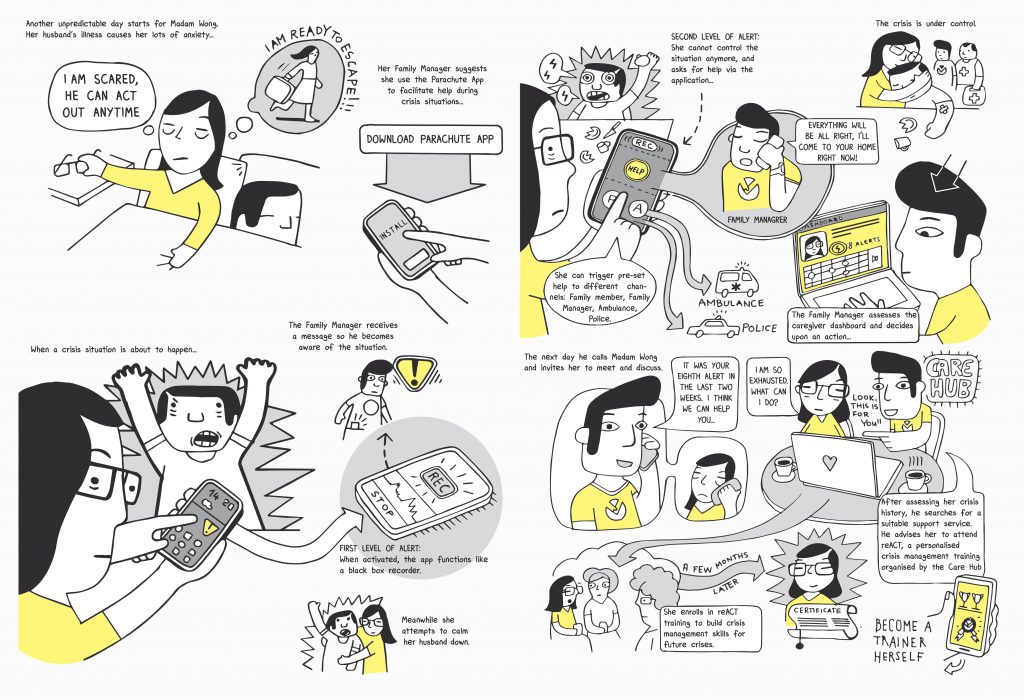
Understanding mental health challenges in the Indian context
Mental health is often under-communicated and associated with stigma. That is why many people, and youth in particular, struggle to talk about their mental health challenges. To enhance the engagement of Indian youth with the topic, the Indian health NGO Sangath partnered with local Reach partner Quicksand. They transformed the topic into an accessible and engaging experience using multiple formats like narrative storytelling within comics, stalls at public events, informational animated videos and interactive digital platforms.
Prior to the Sangath project Quicksand also worked together with the Public Engagement Team of the UK foundation Wellcome Trust on a 3-year explorative research project concerning mental health in the Indian context. To explore the topic Quicksand engaged with more than 40 young people through focus group discussions, and a diverse list of mental health practitioners and organisations that engage with Indian youth.
Danish youths opinions and norms to sexual consent
How do Danish youth speak and think of sex and consent? Which surroundings and social circumstances are consciously and subconsciously contributing to the need of expressing or asking consent for sex? Det Kriminalpræventive Råd (DKR – the Danish Criminal Prevention Council) was keen to gain further insight in how Danish youth speak, think, and act in relation to sex.
Our Danish Reach partner Antropologerne generated insights on the opinions and norms that influence the youth’s approach to sex by taking a holistic approach. Through focus group interviews with creative exercises, in-depth interviews, text interviews, and video-reflective exercises they generated insight in the opinions and norms that influence the youth’s approach to sex in general. This knowledge is to become the foundation of a campaign which aims to prevent sexual assault among the youth and to further the norm of consenting to sex.
Combating sexual exploitation of children in The Netherlands
What can designers do to help combat the sexual exploitation of children? That is the question posed by What Design Can Do in collaboration with the Dutch Public Prosecutions Service (OM) and the Ministry of Justice & Security in The Netherlands. Our local Reach partner STBY conducted research on the topic and created a set of comprehensive briefs as a starting point for an invitation-only design challenge.
In the No Minor Thing Challenge, selected design teams and academies received an opportunity to come up with new ways of addressing and avoiding sexual exploitation of children. As the research partners of What Design Can Do, STBY worked on unpacking the complexity of this sensitive topic into a range of concrete questions that could be addressed through design. Given that the topic touches upon many different problem areas, STBY researched it by working closely together with diverse stakeholders and experts.
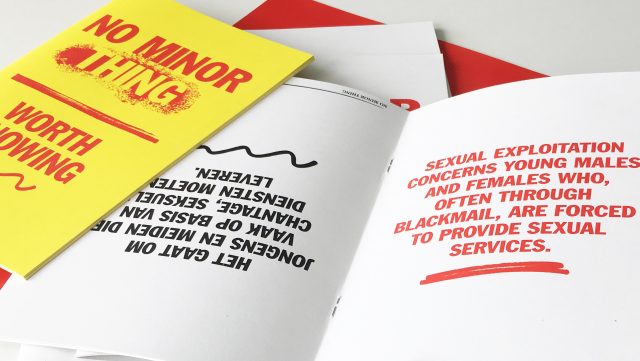
Finding new ways to promote HIV Self Test Kits in Kenya
Kenya has a burgeoning youth population that experiences an increased financial, education and health burden. Despite massive efforts in HIV/AIDS programming in the country over the last 20 years, there is a clear disconnect between HIV testing and the potential of treatment. Our African Reach partner Matchboxology, explored this topic with the objective of finding new ways to promote HIV Self Test (HIVST) kits to men at great risk. The Human Centered Design process helped to unpack the concerns, challenges and opportunities relevant to HIVST.
Matchboxology concluded that In order for any intervention to be successful, there must be concentrated effort to eradicate stigma in the ecosystem. The user research led to a few early prototypes to increase HIV self-testing which were tested with users. Building on the success of this exploration, Matchboxology is now moving to pilot phase of the project.

Using wearables to increase health and wellbeing in UK and US
Can wearables help to increase the health and wellbeing of their users? For a large international technology company our UK based Reach partner STBY worked on several projects concerning the role of smart technology in helping people to feel more in control of their health. One of these projects was a foundational study into sleep and stress management in the UK. The focus of this study was to explore existing patterns in user experiences around sleep and stress management, and to also speculate together with the research participants what future improved scenarios involving smart technology might look like.
Another such project was a longitudinal study on behaviour changes related to achieving specific health and fitness goals in the US. STBY was asked to explore and monitor how people reach their health and fitness goals, as well as the mechanisms that enable or hinder the formation of new habits and routines. As many of these projects evolve around habitual routines of individuals and the potential of behaviour change, longitudinal studies that build on traditions in psychology and sociology, are very effective.
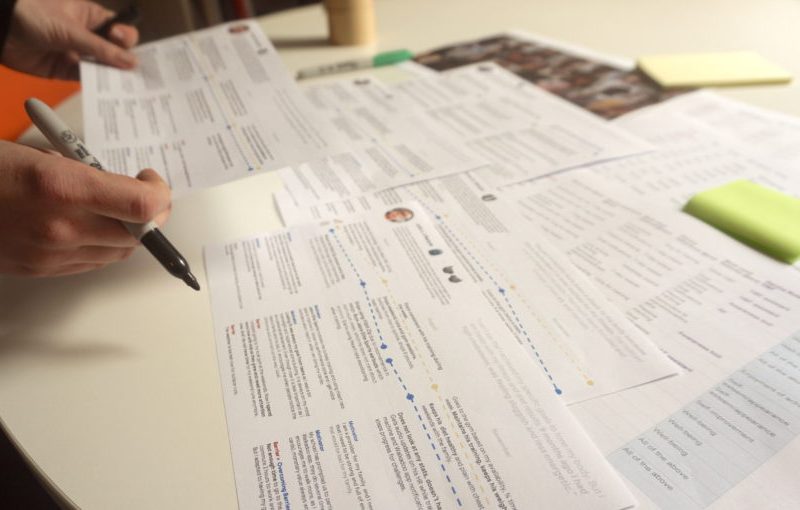
New business strategies health and wellbeing sector in Indonesia
To understand people’s personal motivations and strategies around health and wellbeing in Indonesia, Reach partner The Care Lab conducted in-depth, video-ethnographic research in various cities. Insights were translated to 24 short documentary films and a design handbook called ‘Beyond Jamu’ – presenting new product-service concepts to inspire new business strategies for companies in the health and wellness sector. The project was commissioned by the Singapore Design Council within its Asian Insights and Design Innovation (AIDI) program, and conducted in collaboration with IE Singapore.
Monitoring the development of babies in China and Australia
How do young mothers monitor the development of their child during its first one thousand days – from pregnancy to toddler? To answer this broad research question for a multinational FMCG company, a consortium of 3 Reach partners carried out in-depth research that included interviews and design documentaries made with mothers in Sydney, Hong Kong and Shanghai. In each location several young mothers with children of varying ages, including expecting mothers, participated and shared their experiences. This project was a close collaboration between Apogee in Hong Kong, MELD studios in Sydney, and STBY in Amsterdam, where the core client team was based. The goal of the project was to enable the wider international client team to step into the shoes of these mothers, with the aim to see their families and everyday lives as they do, which is a crucial step towards creating meaningful ideas for new innovative services.
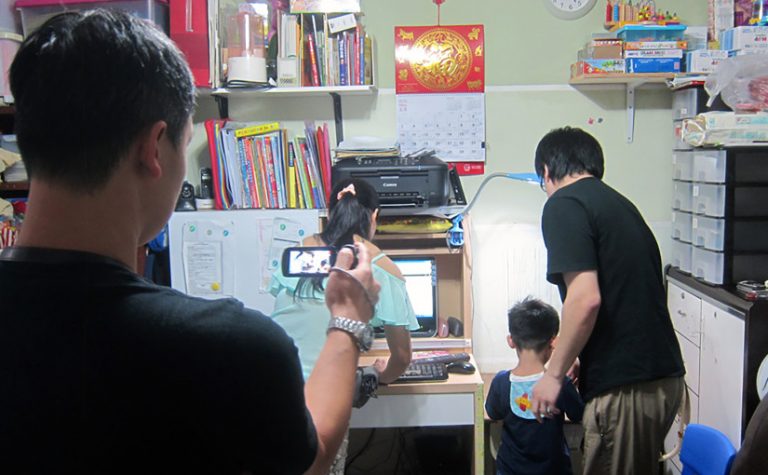
How to best support Japan’s ageing population?
Japan is witnessing an increasing growth of their ageing population, and alongside that also many challenges for providing care for ageing communities outside of the hospitals. The Tokyo based design agency Neuromagic asked our Reach partner STBY to collaborate with them on a research project centred around the use of IV drips by elderly patients in the context of their homes or in nursing homes. STBY’s role consisted of supporting and coaching the Neuromagic team with doing field research in Japan, including home visits and an initial analysis and ideation workshop. The project was initiated by a hospital in Kawasaki, after receiving funding to explore and innovate within this field.
Strategic planning toolkit for dementia care home in Singapore
The leadership team of the Apex Harmony Lodge Dementia Home in Singapore asked Reach partner The Care Lab to support them in designing and implementing a people-centric strategy planning process and toolkit, to map out their activities and plans for 2018. The Care Lab created a toolkit that allows teams to plan their current and future initiatives in an easy to use format, as well as tools for first line care teams to easily share their ideas, suggestions, and best practices. The designed process and tools have enabled the team to empower their management and staff to take a collaborative, proactive and innovative approach to align their vision and actions to achieve their goal of holistic dementia care.
Raising awareness of bone marrow cancer in Denmark
Myeloma, a bone marrow cancer, is not yet widely known. In order to raise awareness in the Danish society of life with myeloma, Celgene commissioned Reach partner Antropologerne to dive deep into the needs of patients and their relatives. This qualitative research was done by conducting short interviews with patients and relatives and followed up by in-depth interviews with selected participants. All in-depth interviews were conducted in the participants’ own homes, and were focused on their experiences, feelings, hopes and challenges that comes with a life impacted by bone marrow cancer. Presented in a visual way, using films and a report, the research findings enclosed the changes and challenges that patients experience.
Inpatient Hospice Experiences in Singapore
Hospices have a negative image in society despite their compassionate and skillful efforts to care for people at the end of life. And yet with increasingly ageing populations the demographics alone force us to rethink the way end-of-life care is delivered and experienced.
In close collaboration with project partners Assisi Hospice, Dover Park Hospice and St Joseph’s Home and Hospice The Care Lab delved into the hospice sector in Singapore conducting ethnographic observations, co-design workshops and in-depth interviews with patients, families, care teams and experts. As a result, the Hospitable Hospice offers critical new thinking and a refreshing vision with which to re-imagine future hospices and end-of-life care services.
Improving an AI chatbot to support doctors with their work in Indonesia
Our Indonesian partner Somia CX researched how Indonesian medical practitioners work in order to create a better suited AI chatbot that supports the doctors with their job. The doctors can ask the robot for information about diseases, drugs, dosage, medical journals, and symptoms. The robot is connected to an app that allows them to chat with other doctors to get second opinions for example, or to share case studies with fellow doctors through personal and group chats. Somia CX conducted this research by interviewing hospital and puskesmas doctors in three different cities and surrounding rural areas. During the research they developed new concepts, and tested them along with the existing app to gather feedback for further improvements.
Imagining the future of women’s contraception in India and Kenya
In developing countries 200 million women lack access to contraceptive technologies. This results in around half of the pregnancies amongst adolescent women aged 15-19 being unintended. Reach partner Quicksand partnered with the international nonprofit development organization FHI 360 to investigate the unmet contraceptive needs of women in developing contexts. The goal of this investigation was to set the groundwork for ideation around far-future products and was supported by The Bill & Melinda Gates Foundation.
The project was conducted over 18-months and utilized human-centred design as a methodology to understand women’s experiences of existing contraceptive methods in Kenya and India. Over 350 women and girls were interviewed around both contexts through in-home conversations, focus group discussions, intercept interviews and context visits. With the research findings acting as a foundation, Quicksand conducted ideation workshops in both countries with a multidisciplinary group. Across both countries over 200 ideas were generated for future research.

A Sparkle Toolkit to prevent doctors around the world from burning out
More and more doctors burn out, due to not being able to do what they come to the profession for: caring for patients. Committed to this development, our Barcelona based Reach partner The Care Lab, in collaboration with Hong Kong based Reach partner Apogee, developed a Sparkle Toolkit for doctors. They interviewed doctors in Barcelona within the range of med students to retired surgeons, and understood what their path is from sparkling to sleepwalking at work. The Sparkle Toolkit aims professionals to reflect and identify strategies together with their peers to find their way back to sparkling.
